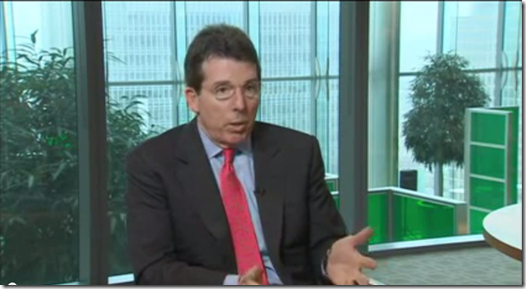Question Of the Week: Your Nightmare Media Stories
Do you have a media nightmare story?
I’m guessing you do. If there’s one thing that unites our clients, it’s that almost all of them have a tale to tell of a media interview gone terribly, terribly wrong.
Some of the stories are truly horrific. One fire chief told me a story about a firefighter who died in the line of duty. His family hadn’t been notified yet, so when a local reporter told the fire chief he was about to report the name of the deceased firefighter, the chief begged him not to. The reporter agreed – but only if the chief agreed to a live interview. The chief agreed, and the reporter immediately sandbagged him with his first question: “Can you confirm that Bob Smith is the firefighter who died?”

I hope your stories don’t involve matters of life and death. But I want to hear them – and I’m betting other readers do as well. So here’s this week’s question of the week:
What is your worst media nightmare story?
Please leave your story in the comments section below. I’ll compile your answers and run highlights in the next few days. Also, please share this question with your personal social networks so we can get a wide-ranging variety of answers and learn from each other. Thank you!
Related: Question of the Week: Is It Unprofessional to Ask a Reporter For The Questions Before an Interview? (See answers in the comment section)
Related: Question of the Week: What Tricks Do You Use to Manage Stage Fright? (see answers in the comment section)

My worst Media nightmare story…
Social Media created a rumour saying my organization was going to do something awful. When we corrected the error to the media, it was spun that the public outcry stopped the situation.
Often now the misinformation is brought up as a backgrounder when our organization is mentioned in the media, regardless if the story is a “do good” story or not.
Correcting the misinformation has been an on going battle.
That sounds incredibly frustrating, and is one of the unfortunate hazards of operating in the age of social media. I wish you and your organization the best in correcting the record! Thanks for leaving your story on the blog.
I worked for months to get a reporter to visit my client’s business. I was confident he would be impressed and it would result in a nice feature story.
Everything went perfectly as the reporter spent hours interviewing executives and touring the facility. We waited excitedly for the day the story was to appear.
Unfortunately, the reporter somehow misspelled the company name in the headline and throughout the entire story.
My client was furious and I was left to handle the situation.
John –
Thanks for leaving your story. That’s a painful one – you do everything you can to land a nice piece, and get your hard work undermined by an easily-avoided reporter error.
I’ve started sending reporters my name, title, and prefered bio line to try to avoid a similar fate. But as you already know, just because you send it doesn’t mean they’ll use it (or refer to it when writing the story). A professional hazard, to be sure…
Thanks!
Brad
I was working for a university. We partnered with a foundation to bring one of the founders of the Human Genome Project to town as part of a national lecture series. The media strategy was to offer one interview in the city. We chose the local daily’s science reporter.
He turned down the interview flat. At that point we may have caused trouble by going to his boss and asking if another reporter might want the story, since the science writer was not interested. He called back shortly after, in high dudgeon. When I picked up the phone, rather than hello, he said “I guess I’m doing the story.” He arrived for the interview late, having had trouble finding a parking spot. I met him, and he said “I hope he’s got something interesting to say, because I don’t have a SINGLE QUESTION.”
The story wasn’t AWFUL. But I couldn’t believe that offering an exclusive with a major scientific figure to a science writer could be so irritating.
Once, while working for a hospital, I arranged a news conference to announce the opening of a new orthopedic center. (This was many years ago when reporters would cover news conferences). I didn’t know it but the doctors who were co-directors of the new center had invited their wives, children and other relatives to the news conference. They showed up just as we were getting underway and sat down toward the front. The wives were in fur coats, the children were crying—and those of us who organized the event were mortified! To make matters worse, one of the doctors had a young patient who had been operated on earlier that day wheeled in during the news conference–he threw up as he reached the front of the room.